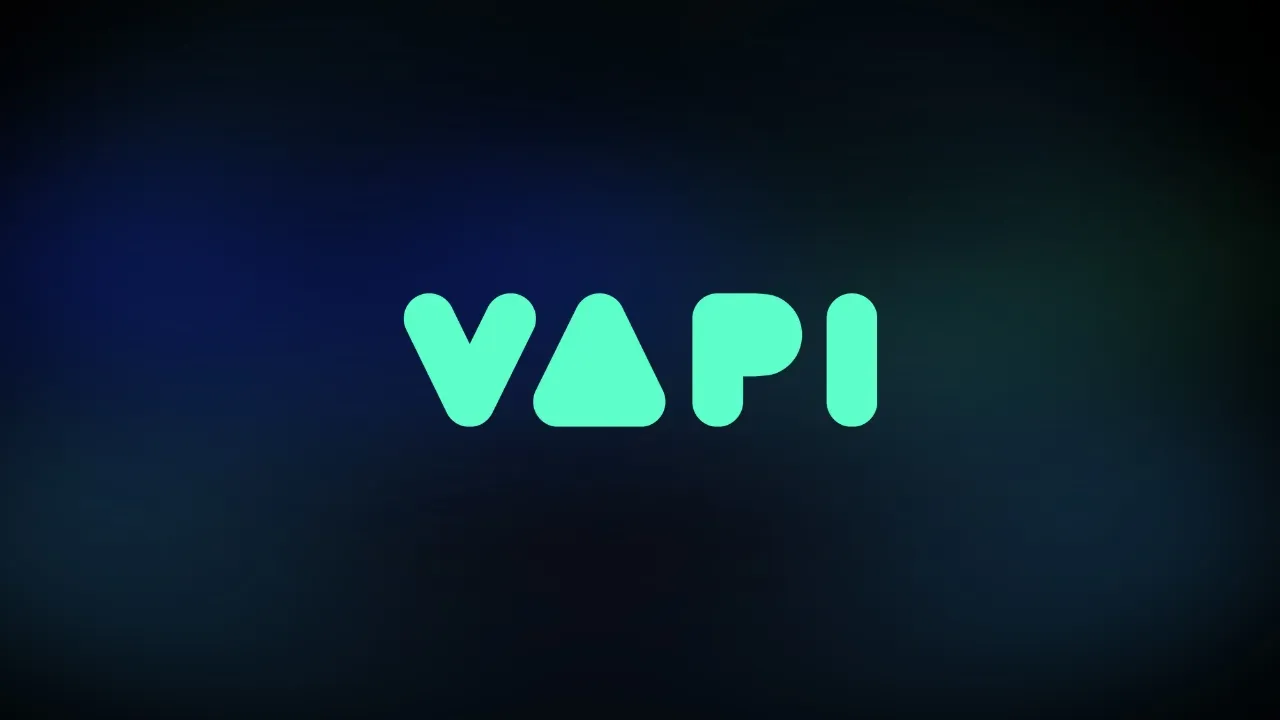
Conversational AI platforms have become integral in enhancing customer interactions, automating support, and streamlining operations across various industries. Vapi AI and Rasa are two notable platforms offering distinct approaches to building and deploying conversational agents. Understanding their unique offerings is essential for businesses to align their technological investments with their strategic objectives.
What is Vapi AI?
Vapi AI is a platform designed to enable developers to swiftly build, test, and deploy voice bots. It serves as a middleware layer, integrating components such as text-to-speech, speech-to-text, and natural language processing to facilitate the creation of voice-enabled applications. Developers can utilize Vapi's API to set up phone numbers, manage calls, and incorporate their own models or choose from Vapi’s offerings.

| PROS | CONS |
Enhanced User Experience | Complex Pricing Structure |
Advanced Language Processing | Limited Free Concurrency |
Strong Developer Support | Restricted Telephony Integration |
Robust Customization Options | Lower Uptime Guarantee |
What is Rasa?
Rasa is an open-source conversational AI framework that provides tools for developers to build, deploy, and manage contextual AI assistants. It emphasizes flexibility and control, allowing developers to create highly customized conversational agents tailored to specific business needs.
| PROS | CONS |
Open-Source Flexibility | Steeper Learning Curve |
Advanced Natural Language Understanding | Resource Intensive |
Integration Capabilities | Limited Out-of-the-Box Features |
Community Support | - |
Feature Comparison Between Vapi AI vs Rasa
The following table provides a side-by-side comparison of key features offered by Vapi AI and Rasa:
| Feature | Vapi AI | Rasa |
Deployment Model | Cloud-based | On-premises or cloud |
Customization | High; allows integration of custom models and voices | Very high; complete access to codebase for extensive customization |
Scalability | High; can handle over a million concurrent calls | High; depends on the underlying infrastructure |
Multilingual Support | Yes; supports over 100 languages | Yes; supports multiple languages |
Integration Capabilities | Moderate; primarily through API integrations | Extensive; integrates with various channels, APIs, and databases |
Community Support | Limited; primarily through official channels | Strong; active community with extensive documentation |
Latency Optimization | Implements turbo latency optimizations for faster response times | Dependent on deployment and infrastructure optimizations |
Summary of Features: Why Choose One Over the Other
Choosing between Vapi AI and Rasa depends on your organization's specific needs:
Walk away with actionable insights on AI adoption.
Limited seats available!
Choose Vapi AI if:
- You require a cloud-based solution with rapid deployment capabilities.
- Your focus is on developing voice bots with scalable infrastructure.
- You prefer a platform that offers flexibility in integrating custom models and voices.
Choose Rasa if:
- You need complete control over your conversational agent's behavior and data.
- Your project demands advanced NLU capabilities and complex dialogue management.
- You have the resources to manage infrastructure and prefer an open-source solution with extensive customization options.
Plans and Pricing of VAPI AI and RASA
Understanding the pricing structures of Vapi AI and Rasa is crucial for aligning your budget with your conversational AI objectives. Below is a detailed comparison of their offerings:
| Plan/Feature | Vapi AI | Rasa |
Base Rate | $0.05 per minute for calls. | Free Developer Edition; Growth plan starting at $35,000 annually. |
Additional Costs | - Transcription, model, voice, and telephony services charged at cost.- Option to bring your own API keys for providers to manage costs. | - Enterprise plan offers full access to Rasa Platform with premium support; pricing is customized based on specific needs. |
Phone Numbers | $2 per month per number. | Not applicable. |
Starter Credits | $10 in free credits upon sign-up to test voice workflows without immediate investment. | Not applicable. |
Pricing and Plan Conclusion
Vapi AI offers a transparent, usage-based pricing model, making it suitable for businesses with variable call volumes seeking flexibility and control over costs. The initial $10 in free credits allows for risk-free testing of the platform's capabilities. However, it's important to account for additional costs associated with transcription, language models, and voice services, which can accumulate based on usage.
Rasa provides a free Developer Edition for those starting out, with substantial features that are accessible for initial projects. For more extensive needs, the Growth plan starts at $35,000 annually, offering full platform access and basic support. The Enterprise plan is tailored for large-scale deployments, with pricing customized to the organization's specific requirements. This structure is ideal for businesses seeking comprehensive solutions with dedicated support and advanced features.
VAPI AI and Rasa are Recommended for?
Choosing between Vapi AI and Rasa hinges on your organization's specific needs, technical expertise, and budget considerations:
Walk away with actionable insights on AI adoption.
Limited seats available!
Vapi AI is recommended for businesses that:
- A cloud-based solution with rapid deployment capabilities is required.
- Focus primarily on developing scalable voice bots.
- Seek flexibility in integrating custom models and voices.
- Prefer a pay-as-you-go pricing model with control over usage-based costs.
Rasa is recommended for organizations that:
- Desire complete control over their conversational agents' behavior and data.
- Need advanced NLU capabilities and complex dialogue management.
- Have the resources to manage infrastructure and prefer an open-source solution with extensive customization options.
- Are prepared to invest in a comprehensive platform with dedicated support for large-scale deployments.
Customer Reviews for Both Platforms
Customer feedback provides valuable insights into the real-world performance and user satisfaction of these platforms:
- Vapi AI: Users have praised Vapi AI for its advanced voice recognition capabilities and real-time processing, significantly enhancing user interactions. However, some have found the initial setup process to be complex and time-consuming. Overall, Vapi AI has received a rating of 4.2 out of 5 on G2, with comments highlighting its impressive voice recognition accuracy.
"The voice recognition accuracy is impressive, making our applications more interactive and user-friendly." - John D.
- Rasa: Praised for its open-source flexibility, allowing developers to customize conversational agents extensively.
In conclusion, both Vapi AI and Rasa offer robust platforms for developing conversational agents, each with its unique strengths and considerations. Your choice should align with your organization's specific requirements, technical capabilities, and budgetary constraints to ensure the successful implementation of your conversational AI initiatives.
Walk away with actionable insights on AI adoption.
Limited seats available!



